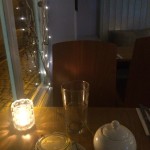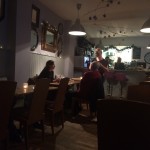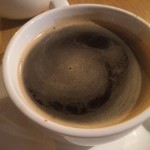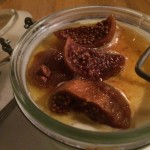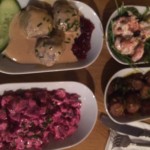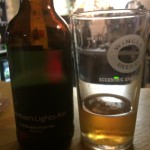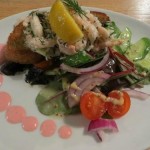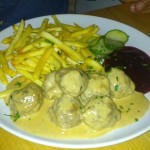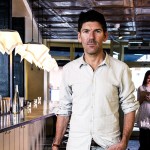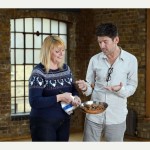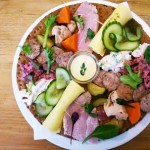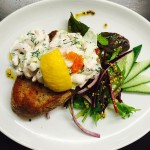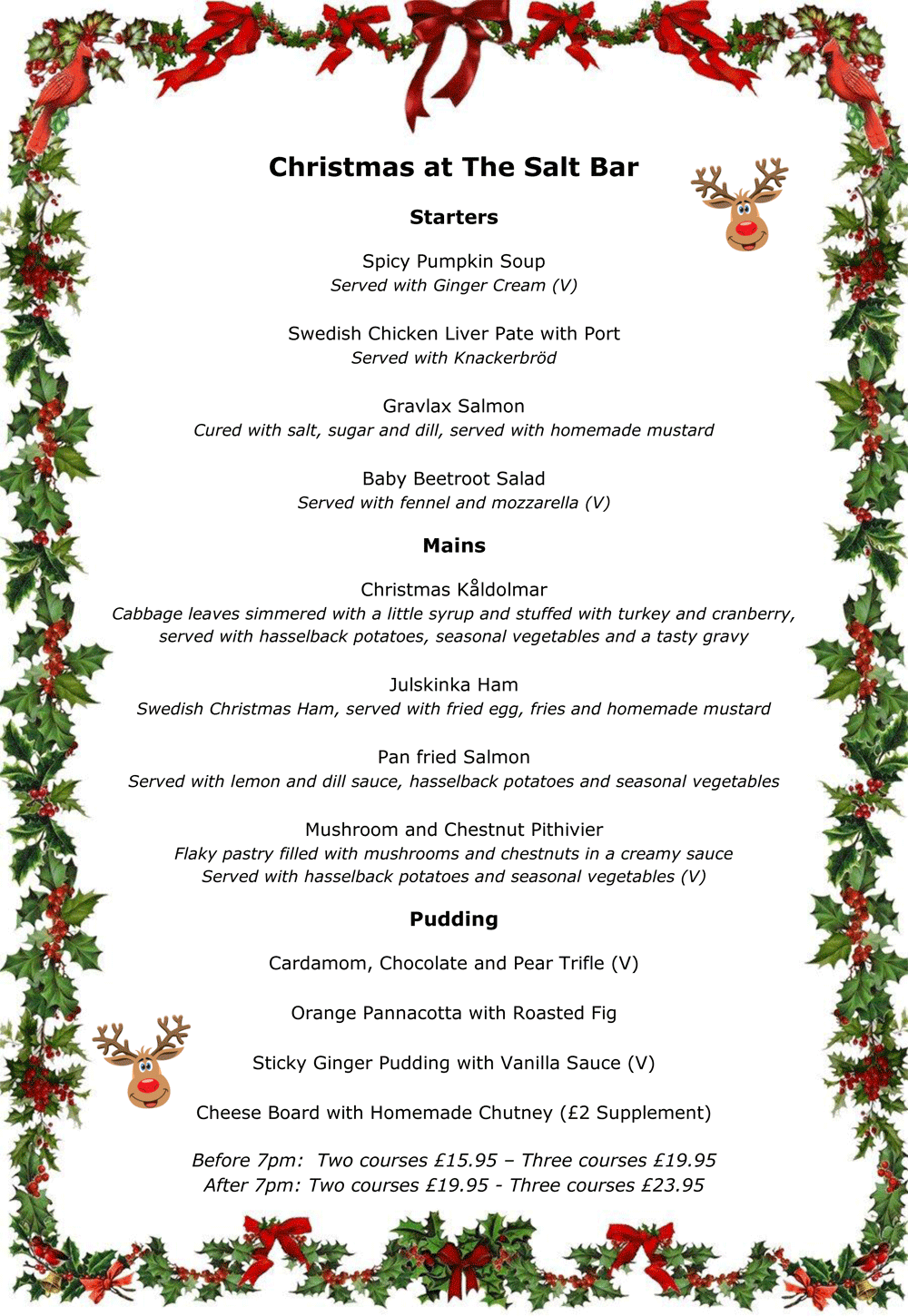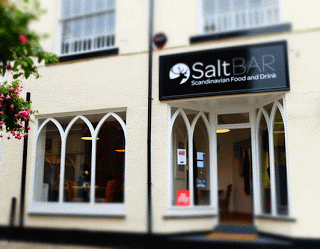Ask most people what they think of when you say Scandinavian food and they will probably mention IKEA meatballs with cream sauce, lingonberries and fries. If you’re lucky they may think of gravad lax. Outside London, restaurants dedicated to Scandinavian food are a rarity, so in the sleepy streets of Macclesfield, deep in the Cheshire heartland where I grew up, the Salt Bar is unique in its mission to educate the public to the many delights of northern European cuisine.
Luckily, I had my eyes opened at a relatively early age. My parents loved to travel Norway, Sweden and Denmark, so from my mid-teens we were driven thousands of miles every summer to explore the scenery, culture, food and drink of these wonderful countries, and which I continued with subsequent visits to Finland and Iceland. My memories certainly take in a wide variety of seafood – freshwater, seawater, smoked and crustacea – amazingly fresh and zingy salads, splendid meats including lamb, venison and even elk, and much more besides. Additionally, the people are friendly and hospitable, and certainly take pride in the fine quality of their raw ingredients, notably the glorious seafood found in northern waters.
However, the Salt Bar is not just your average Cheshire restaurant. Not a bit of it – this one gained national coverage, the sort of publicity most restaurants would kill for, thanks to the BBC series The Restaurant Man. This programme features restauranteur Russell Norman, the man behind, among others, Polpo (which I didn’t rate as highly as its reputation among the glitterati would suggest it deserved.) Norman visited a number of restaurant start-ups in a consultancy role to tell the newbie owners where they were going wrong, in order that they might stand a better chance of success in the face of a horrific rate of year one closures. Some ignored him and continued merrily on their own way, though the very fact they appeared on TV gave each a leg-up they would not otherwise have gained.
Whether they could sustain that advantage is down to the food and service in each, so a visit two years down the line tells you much about whether the proprietors, Scandophile Debbie Quinn in this case, would have succeeded even without the attentions of Mr Norman.
On this occasion I dined alone in what is a fairly snug and homely dining room, though the Salt Bar enterprise also extends to the nearby Salt Rooms, which in some locations would have been described as a boutique hotel. Maybe someday I will sample and review those too.
The intimacy of the atmosphere and the fact that it was comparatively early on a horrible Cheshire night allowed me time to chat with a charming waitress, who by her accent may well have been Scandinavian in origin. It also gave me time to sample a Northern Lights pale ale, brewed for the restaurant and very apt – mirroring the wonderful picture of the Aurora Borealis on a wall near the bar; cue discussion with waitress about my recent close encounter in Iceland. No doubt the atmosphere warms up when SB is packed, but I enjoyed it better without a loud hum of conversation from every table.
The menu has evolved from the initial days with the Norman thumbprint. It still includes some excellent fresh local produce, as you would expect, but wisely Mrs Quinn has included a section devoted to a Smörgåsbord “taster menu” – or a selection of Swedish tapas to coin a phrase with which most people would associate.
“Small plates” have been a culinary vogue for some while now, but here they make perfect sense, allowing virgins of Scandinavian cuisine to sample a range of dishes cheaply and easily. Fact is that this has been a standard way of eating in the Scandinavian countries for Centuries! This being the case, I chose four plus a bowl of fries for this meal:
Inevitably the meatballs had to feature – and in this case were closer in size to the Frikadeller I remember so fondly from visits to Denmark and Sweden than the much smaller IKEA köttbullar. These came with the obligatory cream gravy and lingonberry jam, but did taste home made. Unfortunately, the menu does not record which meats go into this version, but an authentic mix might include pork and veal. Very tasty and notably well-seasoned, just a hint of spice to add piquancy and contrast to the sweetened lingonberry and rich gravy.
A second meaty dish came in the form of the SB’s home-smoked sausage, served hot and chunked in a “honey mustard dressing.” This was so excellent I was tempted to ask if they sold their smoked sausage whole and cold to take home – and you can easily imagine that Mrs Quinn’s next venture might well be a Salt Bar delicatessen offering home made gravad lax, sausage and other delicacies.
Thirdly, a few peeled crayfish came in a minute portion, nestling in a corner of the oblong plate with lemon dill mustard and cucumber. It would be interesting to know the derivation of these – and I suspect they were langoustines, nephrons norvegicus – scampi – rather than the American mudbugs, but none the worse for that. They were delicate and delicious, and certainly left me wanting more.
Finally, a beetroot and apple salad provided the perfect accompaniment, and as a lover of beetroot I could have eaten this salad til it was coming out of my ears. Delicious!
So far so good, though the highlight was yet to come. Pannacotta (Italian for “cooked milk”) is not Scandinavian by origin, and to the best of my knowledge oranges do not grown native to Sweden, yet the two were combined by the Salt Bar kitchen to make a simple but delectable desert, topped with hot roasted figs. This was utterly divine – my dessert of the year and damn good value at £5.
All told, £30 for a very satisfying dinner, without the need to touch pricier mains that included rare venison in a liquorice sauce, and duck breast with wild berries. Either would have graced my plate, and indeed may well be sampled at the next visit. Given that my mother will be resident in the local hospital for some while to come, there will be ample opportunities to bring the family and taste the full Salt Bar experience.
This was decently unpretentious food combined with a fresh ambience and service notably for being unstuffy, and is therefore on the upper end of the Andy scale – a simple but memorable meal out, for which full credit to the staff. I have no doubt Mrs Quinn’s credentials as a restauranteur mean she would have succeeded even without the TV head start, though you should never take anything for granted.
I well remember eating at a French restaurant elsewhere in Macclesfield, long since departed the way of many others. I was the only diner in that establishment, and got talking to the chef/patron. He told me that they were happy so long as they did not have to throw food away, and were getting good feedback from diners – but alas, not sufficient to make the venture pay. I wish the Quinn family every success and to go from strength to strength – they clearly deserve it, by virtue of doing simple things well and paying attention to detail.


